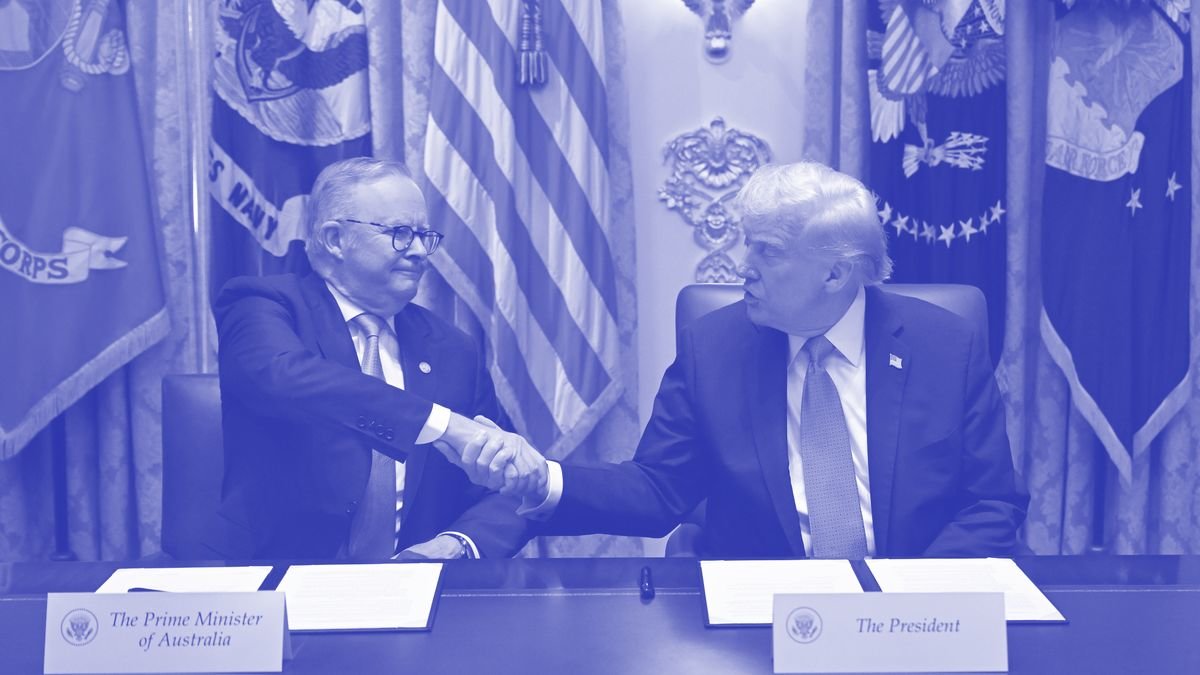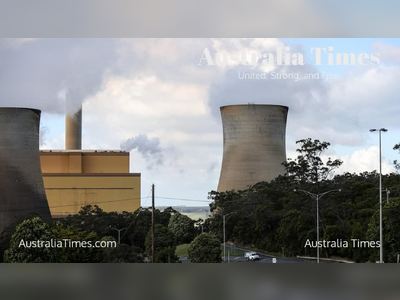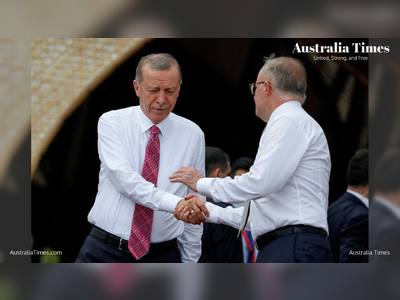
Australia Secures Removal of U.S. Beef Tariffs, Now Eyes Metal Duties
Following U.S. rollback on food tariffs, Australia presses Washington to lift 50 % levies on aluminium, steel and copper
Australia welcomed the decision by U.S. President Donald Trump to lift tariffs on more than two hundred food products—including Australian beef—while turning its focus to remaining metal tariffs that still burden bilateral trade.
The move was made amid U.S. concerns about groceries and inflation, and marks a partial breakthrough in trade talks with Australia.
The tariffs lifted on Friday U.S. time include duties on Australian beef that had drawn strong criticism from Canberra.
Australia’s Trade Minister Don Farrell and Prime Minister Anthony Albanese both described the recall of these duties as “a direct result” of sustained advocacy by Australia, underlining the government’s role in negotiating the reversal.
Australia’s Foreign Minister Penny Wong said the government would “keep advocating our position” and pointed out that there was “very clear economic logic” underlying the case for lifting the outstanding fifty-percent tariffs on aluminium, steel and copper.
While Washington removed duties on food imports, Australia says about half of its exports to the U.S. remain subject to steep tariffs under Trump’s “reciprocal” tariff regime, which targets countries with trade surpluses with the U.S. Australia argues the metal tariffs are “unjustified” and will continue pressing for their full removal.
The government insists its approach is grounded in diplomacy and economic logic—rather than confrontation.
The sub-headline on aluminium, steel and copper duties signals that the broader trade agenda is still on the table.
Australia’s producers are keen to regain full access to U.S. markets without facing high import duties, while also seeking to preserve the long-term strategic relationship with the United States.
Minister Farrell described the remaining tariffs on metals as “unjustified” and reiterated Australia’s determination to press for their elimination.
With food tariffs off the table, the spotlight will fall on ongoing bilateral negotiations.
Australia must now translate this short-term win into broader tariff relief.
Analysts are watching whether the U.S. action signals a shift towards more open trade with a long-standing ally or whether metal tariffs will remain stuck due to broader industrial-policy priorities in Washington.
For Australia, the success in rolling back food tariffs reaffirms its capacity to engage strategically and achieve results.
The next phase will test Canberra’s ability to convert that leverage into broader relief for its metals sector and deliver a fully reciprocal trade framework with its largest partner.
The outcome of those efforts could influence industrial access, jobs and investment in Australia’s metals industry, and shape how the two governments cooperate on trade and strategic supply chains moving forward.
The move was made amid U.S. concerns about groceries and inflation, and marks a partial breakthrough in trade talks with Australia.
The tariffs lifted on Friday U.S. time include duties on Australian beef that had drawn strong criticism from Canberra.
Australia’s Trade Minister Don Farrell and Prime Minister Anthony Albanese both described the recall of these duties as “a direct result” of sustained advocacy by Australia, underlining the government’s role in negotiating the reversal.
Australia’s Foreign Minister Penny Wong said the government would “keep advocating our position” and pointed out that there was “very clear economic logic” underlying the case for lifting the outstanding fifty-percent tariffs on aluminium, steel and copper.
While Washington removed duties on food imports, Australia says about half of its exports to the U.S. remain subject to steep tariffs under Trump’s “reciprocal” tariff regime, which targets countries with trade surpluses with the U.S. Australia argues the metal tariffs are “unjustified” and will continue pressing for their full removal.
The government insists its approach is grounded in diplomacy and economic logic—rather than confrontation.
The sub-headline on aluminium, steel and copper duties signals that the broader trade agenda is still on the table.
Australia’s producers are keen to regain full access to U.S. markets without facing high import duties, while also seeking to preserve the long-term strategic relationship with the United States.
Minister Farrell described the remaining tariffs on metals as “unjustified” and reiterated Australia’s determination to press for their elimination.
With food tariffs off the table, the spotlight will fall on ongoing bilateral negotiations.
Australia must now translate this short-term win into broader tariff relief.
Analysts are watching whether the U.S. action signals a shift towards more open trade with a long-standing ally or whether metal tariffs will remain stuck due to broader industrial-policy priorities in Washington.
For Australia, the success in rolling back food tariffs reaffirms its capacity to engage strategically and achieve results.
The next phase will test Canberra’s ability to convert that leverage into broader relief for its metals sector and deliver a fully reciprocal trade framework with its largest partner.
The outcome of those efforts could influence industrial access, jobs and investment in Australia’s metals industry, and shape how the two governments cooperate on trade and strategic supply chains moving forward.
AI Disclaimer: An advanced artificial intelligence (AI) system generated the content of this page on its own. This innovative technology conducts extensive research from a variety of reliable sources, performs rigorous fact-checking and verification, cleans up and balances biased or manipulated content, and presents a minimal factual summary that is just enough yet essential for you to function as an informed and educated citizen. Please keep in mind, however, that this system is an evolving technology, and as a result, the article may contain accidental inaccuracies or errors. We urge you to help us improve our site by reporting any inaccuracies you find using the "Contact Us" link at the bottom of this page. Your helpful feedback helps us improve our system and deliver more precise content. When you find an article of interest here, please look for the full and extensive coverage of this topic in traditional news sources, as they are written by professional journalists that we try to support, not replace. We appreciate your understanding and assistance.










